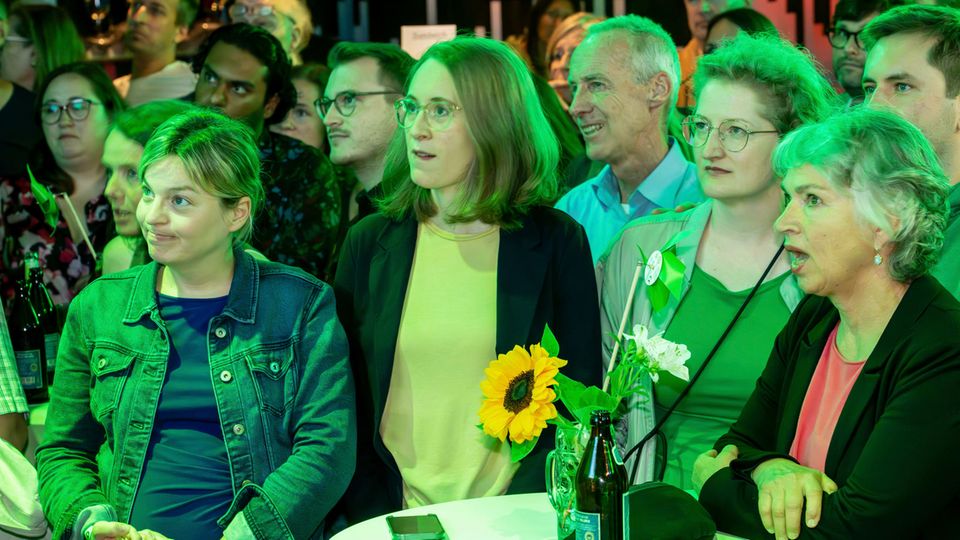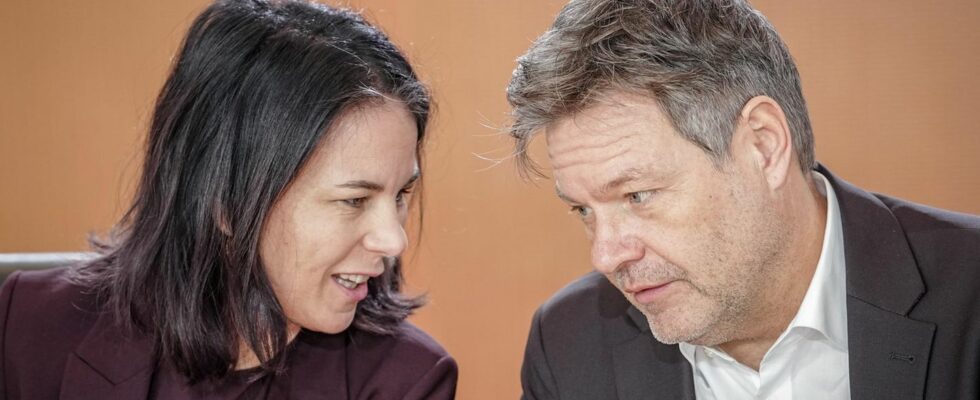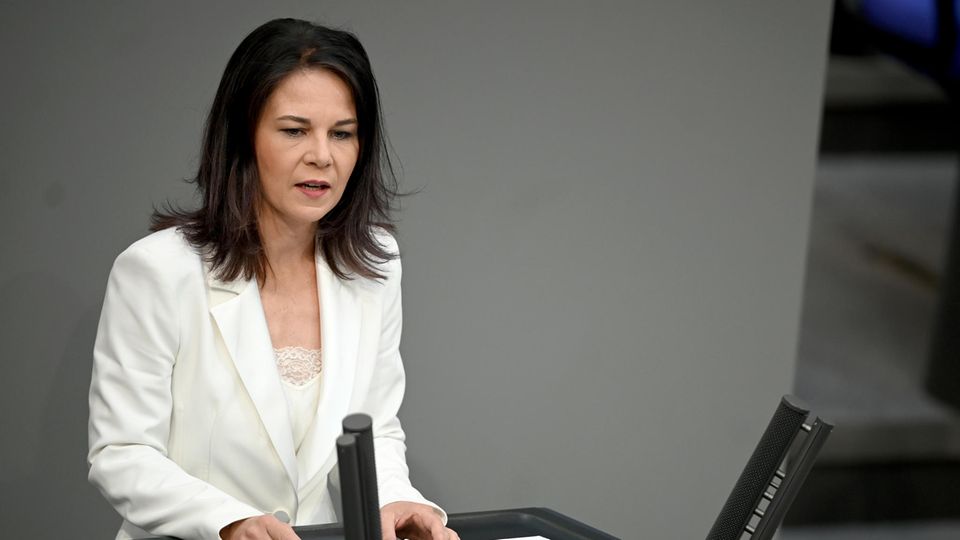It was taken for granted that after Annalena Baerbock’s candidacy for chancellor for the Greens, it would now be Robert Habeck’s turn. But is that actually true? The Foreign Minister is suddenly putting the brakes on.
Oh look, something has been building up over the last few weeks. You could call it a certain unease, an unease about the nonchalance with which the Green Vice Chancellor is pushing himself into pole position. Elegant videos, stately appearances, well-placed articles – Robert Habeck was increasingly asserting his claim to be the next Green candidate for chancellor. It was not just the audience that had this heightened impression, the Green Foreign Minister’s camp had also noticed it.
Anyone who says that it was obvious, that’s what the two of them had agreed on last time, during the first Green attempt at the Chancellor’s office – now you, Annalena, but next time I, Robert – could be wrong. Robert Habeck included. The Foreign Minister herself has now at least put a big, wide stop to this supposed automatism. In other words: With her interview in the Süddeutsche, Annalena Baerbock is back in the game.
Annalena Baerbock’s remarkable sentence
When asked whether she would like to try again herself, Annalena Baerbock says something that makes you sit up and take notice: “As Foreign Minister, I have learned that anything is possible.”
On the one hand, that is factually correct. Crazy things are constantly happening in this world that nobody expected: a European land war, new French elections, a chancellor who speaks plainly. On the other hand, this sentence is a declaration of war. It leaves it sufficiently open what she herself wants, but also makes it clear that she does not want to simply hand over the candidacy to him. So if everything is possible, why not that she runs for a second time as the Green candidate for chancellor?
It looks as if the Greens are facing another problem in addition to their existing problems – why don’t people like us as much as they used to? Who is actually taking responsibility for the 11.9 percent disaster? And what lessons can we learn from it for the upcoming elections? – a still unresolved K question.
“My job, and that of the Vice Chancellor and Minister of Economic Affairs, is to solve the acute problems, not to constantly engage in personnel debates.” Oh, no? Including a small nudge against her former co-chair at the head of the Green Party: In the last federal election campaign, she learned “what a difference it makes when you act as part of a strong team and the parliamentary group and party leadership stand behind you.”
They haven’t forgotten Habeck in the Baerbock camp
This passage is also worth a brief analysis: Baerbock’s supporters, especially her female supporters in the party and parliamentary group, have not forgotten to this day how much Habeck staged his defeat in the K race. “I wanted nothing more than to serve this republic as chancellor,” he complained in an interview with Zeit just hours after the announcement. It sounded a bit whiny. No problem. But it also sounded a bit too self-confident, as if a candidate Habeck would almost certainly become a chancellor Habeck. They in the Baerbock camp have not forgotten that.
Nor has it been forgotten how much the narrative was spread during the last federal election campaign that she only got the job because she was a woman. Because that’s just how it works with the Greens, because all the other parties only put men in the race. Habeck himself offered this interpretation early on as an explanation: If she says she wants it – then she will get it.
Baerbock is now reminding people of the National Security Strategy, drawn up “under the leadership of the Foreign Office,” and is ensuring that the Heating Act is not completely forgotten. “When it came to the Heating Act, we did not address the issue of social security sufficiently at the beginning,” says Baerbock. This is of course nothing new, but has long been a consensus. Habeck himself has thrown himself into the dust about it what feels like half a dozen times, most recently describing it on a podium as a mistake, a test of how far one could go.
National Security Strategy vs Heating Act – of course it is not that simple, but sometimes just as unfair.
Her supporters believe that she has now shown for three years that she can tackle a difficult problem with confidence, that she can even deliver in multiple crises, Ukraine, Gaza – there were massive doubts about this during the election campaign. Now everyone has seen that she can do it.
Did he really do everything so well as Vice Chancellor?
And Robert?, they then ask. With all due respect, has he really done everything so well as Vice Chancellor? Does he really reach more people than her? Does he have more support in the party and parliamentary group? Meaning: as much support as her.
If you ask people around her what she wants, they say she hasn’t had time to think about it seriously. But she is examining herself very carefully. Last time it was easier, she came from the opposition, she had the time. Now the question is: can I do it – to run an election campaign alongside this job as foreign minister? The world out there doesn’t stand still. There is always a crisis somewhere that you just have to get to quickly.
Exit open.

“Many changes of direction in the government”: That’s why fewer and fewer young people are voting for the Greens
03:00 min
So here they are, the Greens. Officially, the task for the two is to come to an agreement between themselves. If they don’t succeed, at least the procedure is clear: the Greens have learned from the wrangling before the final candidate selection. “If there is more than one candidate for the chancellorship, we will hold a primary election,” announced party leader Ricarda Lang. Back in January, that still sounded like pure theory. In mid-June, an interview was enough to make the practical test more likely.
If you now ask whether it is even worth it, given the meager 11.9 percent that the Greens received in the recent European elections, Baerbock counters: “The times are stormy. It would not be the first time that everything changed in a few months.”


